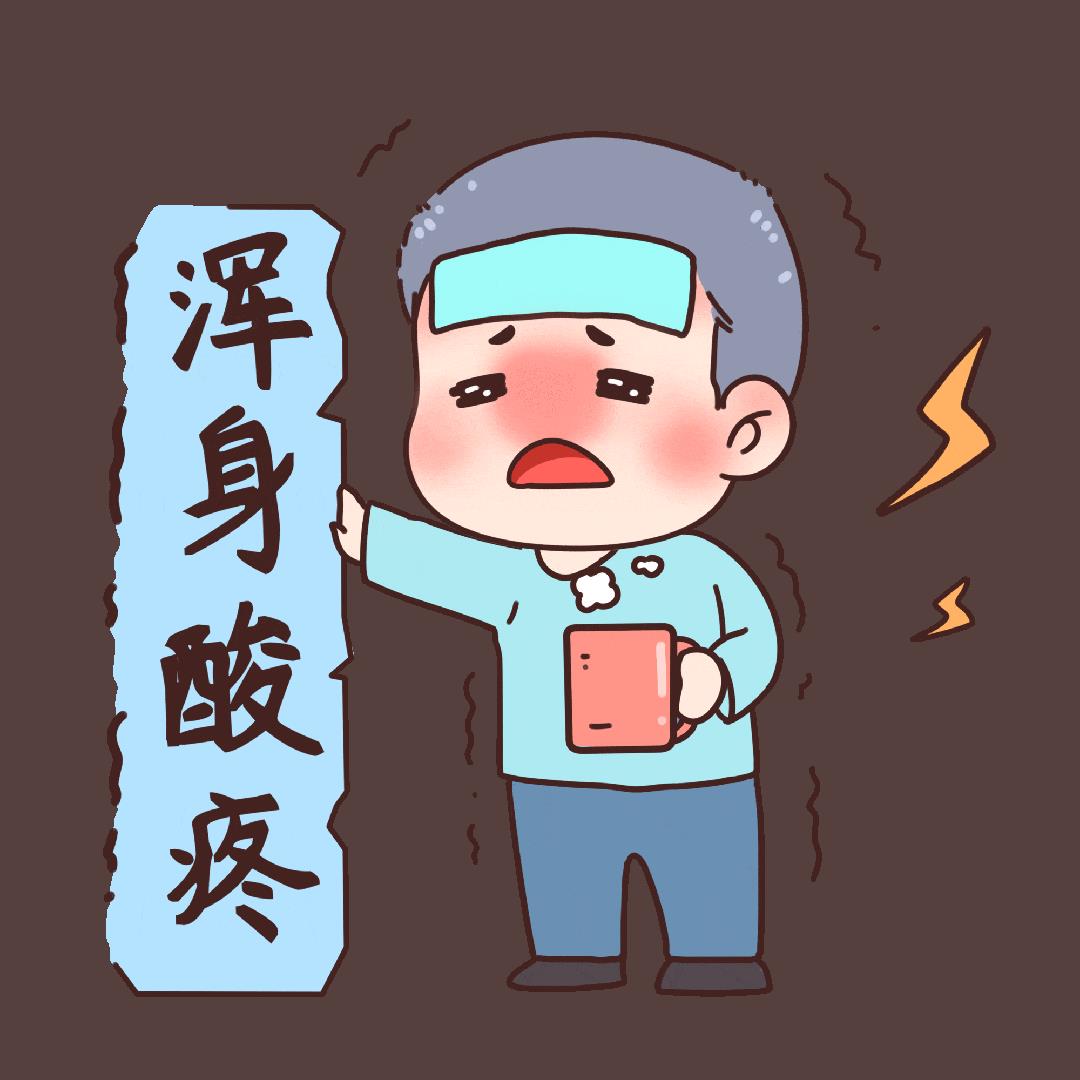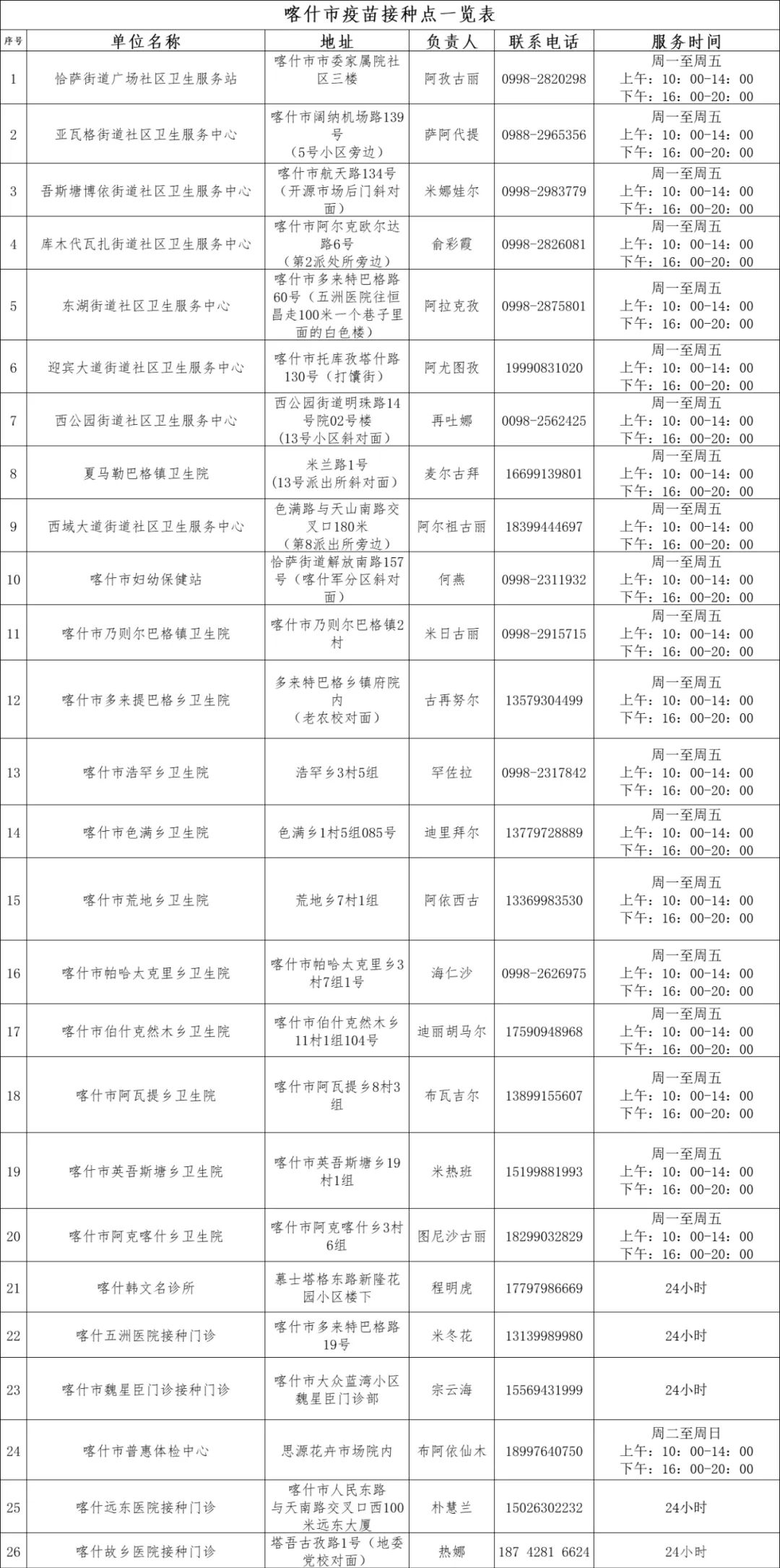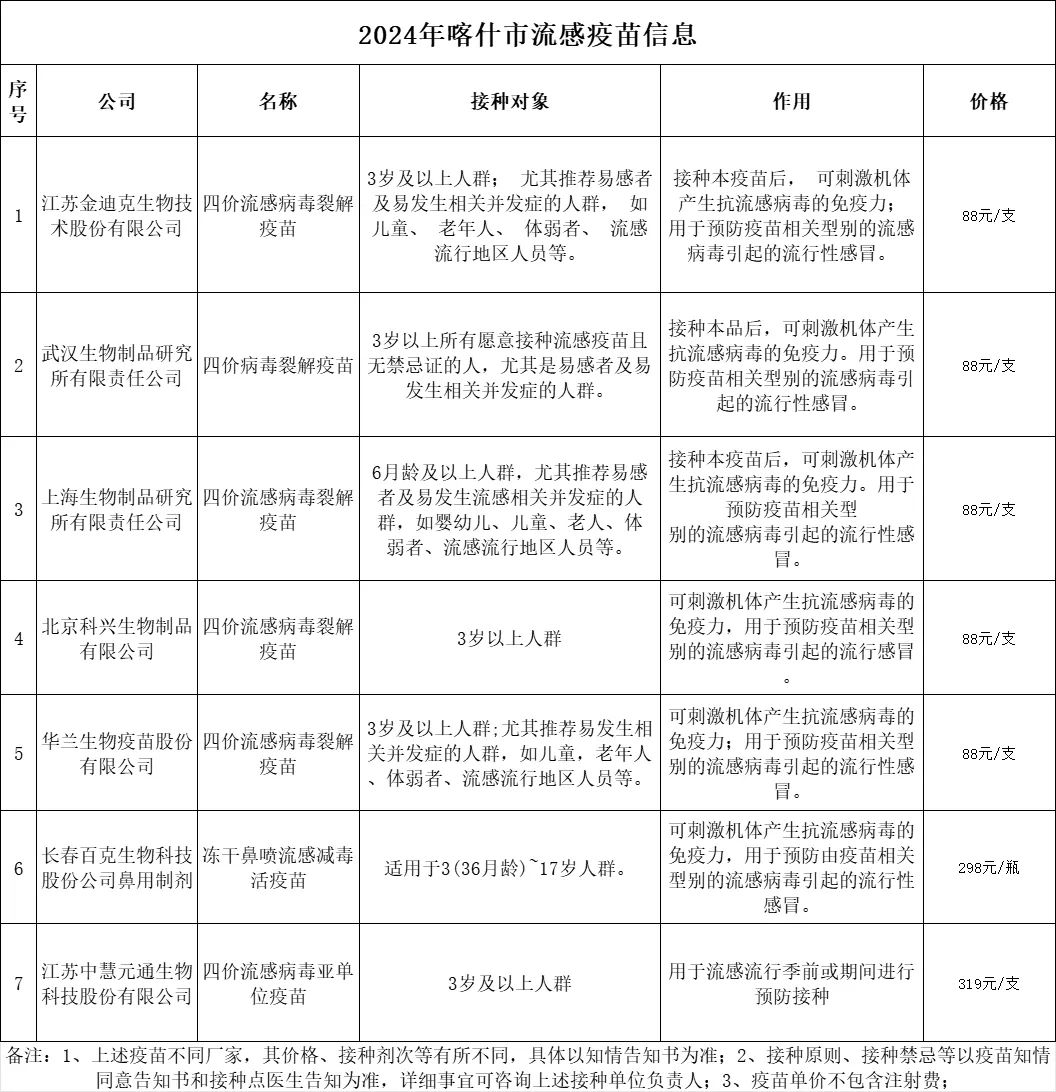Tips:
Friends of the general public: Hello everyone! The flu vaccine has been vaccinated in 2024. Autumn and winter are the high incidence periods of influenza. As an acute respiratory infectious disease caused by influenza virus, influenza not only spreads quickly and widely, but also has various symptoms, such as fever, chills, headache, sore throat, muscle pain, cough, etc., and may also have serious complications such as pneumonia and myocarditis, which threaten the health of countless people every year.

Vaccination against influenza can form an effective immune barrier, which is the most economical and effective means to prevent the occurrence and prevalence of influenza. Vaccination with influenza vaccine can not only effectively reduce the risk of influenza virus infection, but also significantly reduce the risk of serious complications.
About influenza vaccine
The best vaccination time for influenza vaccine is 1-2 months before the peak of influenza, and it is usually recommended to complete vaccination from September to October every year. For students who are about to live in school, they can be vaccinated at the end of August or before the start of school in September. It can not only prevent the influenza virus in this winter, but also effectively prevent the influenza virus in next spring.
Does the flu vaccine need to be vaccinated every year?
Need On the one hand, influenza viruses are easy to mutate, and the strains that are popular every year may be different from those in previous years, and the composition of vaccines is also adjusted every year. On the other hand, the protective antibody produced after vaccination can last for 6 ~ 8 months, and the protective effect will gradually weaken over time.
In order to effectively protect the health of ourselves and our families, we hereby issue a sincere initiative:
It is suggested that all citizens who are over 6 months old and have no vaccination contraindications should go to the vaccination unit as soon as possible and get the flu vaccine at their own expense according to the principle of "informed consent". It is recommended that all people who are over 6 months old and have no vaccination contraindications should be vaccinated with influenza vaccine. In particular, medical staff, the elderly aged 60 and above, people suffering from one or more chronic diseases, vulnerable people and employees in gathering places such as old-age care institutions, long-term care institutions and welfare homes, children aged 6-59 months, family members and caregivers of infants under 6 months, kindergartens, primary and secondary schools, supervision places, etc. are key groups, and timely influenza vaccination is even more necessary.
Precautions for vaccination
Health status:
Before vaccination, please inform the doctor about your health and allergy history so that the doctor can evaluate whether you are suitable for influenza vaccination.
Inoculation site:
Influenza vaccine is usually injected into the deltoid muscle of the upper arm. After inoculation, there may be slight pain or redness, which is normal and usually disappears by itself within a few days.
Observe the reaction:
After inoculation, please stay for 30 minutes so that doctors can deal with possible abnormal reactions such as allergic reactions in time.
Follow-up protection:
Although vaccinated with influenza vaccine, there is no guarantee that 100% will not be infected with influenza. Therefore, we still need to maintain good personal hygiene habits, such as washing hands frequently, wearing masks and keeping social distance, so as to further reduce the risk of infection.
Dear residents and friends, the prevention and control of influenza needs the joint efforts of each of us. Let’s take active actions to respond to the initiative of influenza vaccination and protect the health of ourselves and our families. Thank you for your support and understanding!
Take you to understand the flu.
Influenza (referred to as "influenza") is an acute respiratory infectious disease caused by influenza virus, which is harmful to human health. Generally, it is characterized by acute onset, mainly with fever, headache, myalgia and general malaise. The body temperature can reach 39-40℃, and there may be chills, chills, soreness of muscles and joints, fatigue, loss of appetite and other systemic symptoms, such as sore throat, dry cough, nasal congestion, runny nose, retrosternal discomfort, facial flushing and conjunctival congestion.
Influenza viruses are divided into four types: A, B, C and D. The viruses that cause seasonal influenza epidemic are mainly H1N1 and H3N2 subtypes of influenza A virus and Victoria strain of influenza B virus.
source of infection
Influenza patients and asymptomatic infected people.
mode of transmission
Influenza virus is mainly transmitted by respiratory droplets produced by sneezing and coughing of infected people, and can also be directly or indirectly contacted by mucous membranes such as mouth, nose and eyes.
harm
The antigenicity of influenza virus is changeable and spreads rapidly, which can cause seasonal epidemic every year. Influenza outbreaks are prone to occur in places where people gather, such as schools, kindergartens and nursing homes.
The difference between influenza and common cold
The flu has an acute onset, and its symptoms are heavier than those of a common cold. Although most people endure it for a few days, it is good to prescribe the right medicine or even not treat themselves, but some of them can develop into severe flu due to complications such as pneumonia. A few severe cases progressed rapidly, and even died of acute respiratory failure and multiple organ failure.
For adults, if there is a fever at the onset, it is mostly the flu; If you just have a runny nose, cough and no fever, you are likely to have a common cold.
mode of transmission
Influenza virus is mainly transmitted by respiratory droplets produced by sneezing and coughing of infected people, and can also be directly or indirectly contacted by mucous membranes such as mouth, nose and eyes.
preventive
1. Vaccination against influenza is the most economical and effective measure to prevent influenza. In accordance with the principle of "informed consent and voluntary self-expense", timely vaccination against influenza should be carried out nearby to protect the health of yourself and your family to the maximum extent.
2. Taking daily protective measures can effectively reduce the infection and spread of influenza. Maintain good respiratory hygiene habits, cover your mouth and nose with paper towels and towels when coughing or sneezing; Wash your hands frequently and try to avoid touching your eyes, nose or mouth; Balanced diet, moderate exercise, adequate rest, etc. Avoid close contact with patients with flu-like symptoms; During the flu season, try to reduce going to crowded places.
3. If you have flu-like symptoms, you should rest at home, conduct health observation, go to work and attend classes without illness, and wear masks when contacting family members to reduce the spread of the disease; If you find that your condition is getting worse, you should go to the hospital as soon as possible. Patients and caregivers should wear masks to avoid cross-infection.
Four-valent influenza virus split vaccine, four-valent influenza virus subunit vaccine and freeze-dried live attenuated nasal spray influenza vaccine have all arrived. Please ask residents and friends in need to go to various inoculation sites in Kashgar for vaccination, early vaccination and early protection ~
The following is the information of each inoculation point in Kashgar.


Click the view link for details.
Original title: "2024 influenza vaccination guide is coming! Attached with detailed inoculation points → "
Read the original text